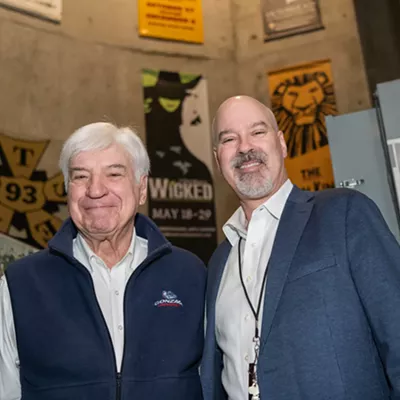The season of the summer blockbuster is upon us — time for some good old American escapism. Let's see, Batman v Superman: Dawn of Justice already opened, and this week it's Captain America: Civil War.
Every year at this time we get those stories about how Jaws changed the movies — everything had to get more outlandish, more huuuge! But maybe it was two years later, in 1977, when Star Wars hit, that the trend really became entrenched. As fun as that movie was, it marked a change in the art of film. Cinematography — the capturing of reality on film — became less important than special effects.
Movie critic David Thomson put it this way in The Whole Equation: "The experience of [Star Wars] was very much like the sensations incurred in playing pinball or the video games that were beginning to appear in theater lobbies... Yes, there were real actors there, but so much of the imagery was fabricated. Nothing looked or smelled like life. Which may be one reason why it appealed so much to those children of all ages rather alarmed by life."
Who doesn't love a great escape into air conditioning, to another time or place? It can even be good for you — a way to recharge your mental batteries. But what happens when the art we celebrate most, in the form of ticket sales, is pure escapism? Sure, the Academy rewarded Spotlight for its very real subject matter and social conscience, but it's The Force Awakens that pays the bills in Hollywood.
Our entertainment industry reflects what the people want, and if you run down the list, it looks like we are, indeed, alarmed by life. Many Americans, it seems, want to pull on the headphones and forget the world. On TV it's Scandal and Game of Thrones, and people love to say how it really says a lot about, you know, what's going on in "real" life. Captain America: Civil War will tackle themes of collateral damage in the age of drones — with a bunch of people in funny costumes play-acting. Again, kind of like what's going in the world.
Only it's not even close.
There is a civics dimension to all this: When does escapism turn into avoidance? When does hiding from the world and all its challenges for a couple of hours become tuning out reality on a more or less permanent basis?
Figures detailing media consumption prove that America is, more and more, changing the channel on reality. According to the Pew Research Center, in 1980 more than 50 million Americans watched one of the three network newscasts; by 2014 that number was cut in half, to 23.7 million. Sure, cable TV had something to do with that, but in any event, fewer people are engaged.
There are other troubling tidbits, too. According to the Media Insight Project, only 6 percent of Americans have "a great deal of confidence in the press" — just two points higher than Congress. And we've all seen the retraction in America's daily newspaper industry, that bastion of vital journalism for generations. Now that the future of mass media is emerging, it's not looking so great. More news and entertainment websites have announced layoffs and money problems, but Google and Facebook are filling the void. Their algorithms promise that, for their users, they'll decide what kinds of information will and will not get shared. It's a Big Brother storyline that might make it into the next Captain America blockbuster.
Finally, consider the latest tech boom about to hit — virtual reality. With headsets like the Samsung Gear VR or the Oculus Rift, you can lose yourself completely in a shiny, alternate universe.
Is there a cost to all this escapism? If we don't pay attention and hold their feet to the fire, our leaders will avoid the tough stuff. We're not, and they are — in fact, Congress is looking at its least productive session since 1956, according to Pew. State governments are using the lack of public engagement to enact all kinds of crazy laws. And in what passes for a presidential election, major policy proposals are floated with no mooring to reality — no method for paying for them, no evidence they will work or ever actually be enacted. It's like America's future being conjured up on a green screen.
Patrick Allan wrote an essay on Lifehacker.com entitled "How to Snap Back to Reality When 'Escapism' Becomes 'Avoidance.'" He's a self-help guru, but he might as well be offering advice to America when he wrote, "Escapism doesn't make you lazy, per se, but too much can turn into avoidance and make you stagnate instead of actively pursuing your goals."
Goals like promoting peace instead of war, curbing climate change and creating a more equitable brand of capitalism all need to be actively pursued.
"Your movie marathon won't protect you," Allan writes, "from the bills you have to pay." ♦

























